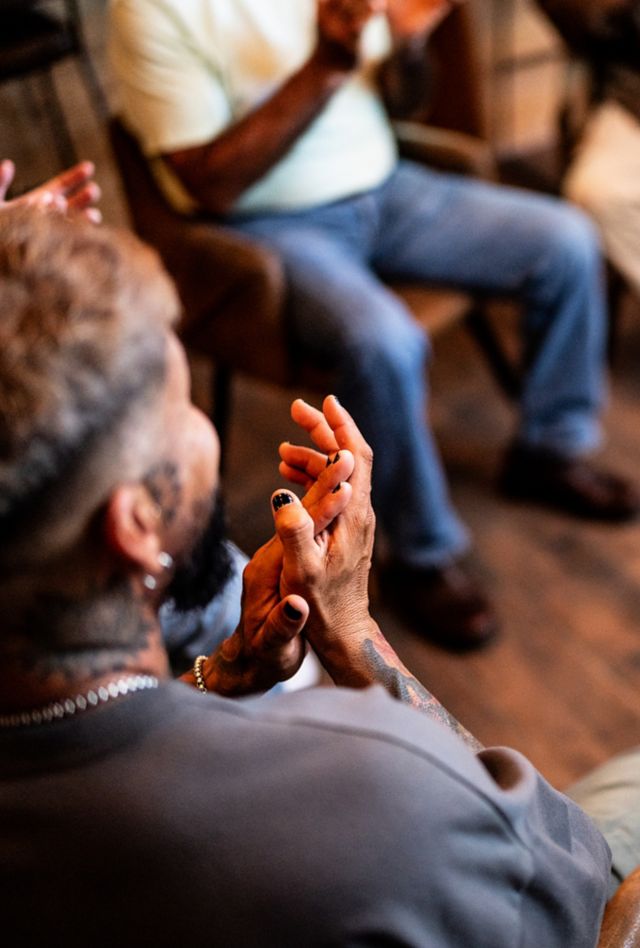Illinois Cannabis Regulation & Tax Act Evaluation

Problem
The laws that legalized adult cannabis use in Illinois included funding for programs to mitigate the negative impact of the War on Drugs.
Approximately one in three U.S. adults experienced either a substance use disorder (SUD) or mental illness in the past year. Despite the prevalence of SUD and mental illness, treatment, employment opportunities, and critical supports and resources for individuals are limited and often inaccessible.
Enacted in 2019, Illinois Cannabis Regulation and Tax Act supports the use of Illinois Department of Human Services (IDHS) funds generated by cannabis tax revenue to study the health impacts of legalizing recreational cannabis and to evaluate programs that are intended to address the broader socioeconomic impacts and inequities caused by the decades-long War on Drugs.
Solution
NORC supported the evaluation of six programs that received cannabis tax funding in Illinois.
NORC, in partnership with the University of Illinois Chicago, supported the evaluation of six programs that received cannabis tax funding in Illinois to understand and evaluate the implementation facilitators, barriers, and successes the programs experience. The programs aimed to provide permanent supportive housing, increase the behavioral health workforce, distribute overdose-reversal medications, expand substance use treatment, provide crisis and suicide prevention services, and increase the public’s awareness of cannabis use. Evaluations of the programs involved a mixed-methods approach utilizing key informant interviews, focus groups, and surveys. More detail on each of these programs is included below.
- Crisis Services: The Crisis Services Program includes three independent but highly coordinated groups, including IL 988 Call Centers, 590 Mobile Crisis Teams, and Stabilization Centers, and a suicide awareness and prevention initiative. The program aimed to expand Illinois’ infrastructure to provide suicide prevention, intervention, and diversion for individuals experiencing a mental health crisis or suicidal ideation.
- Behavioral Health Corps: The program aimed to increase the peer behavioral health workforce by offering individuals with lived experiences Certified Recovery Support Specialist (CRSS) coursework, an opportunity to earn a CRSS certification, and a chance to gain workforce experience through a supervised internship.
- Access Narcan: The Access Narcan program enabled organizations such as hospitals, jails, and community agencies that provide overdose prevention services to order and receive naloxone through a pharmacist-managed portal, free of charge. The organizations distributed overdose-reversal medication to individuals, thereby increasing the availability of life-saving treatment in communities.
- Permanent Supportive Housing: Through a housing first model, Illinois Department of Mental Health (DMH) and Substance Use Prevention & Recovery (SUPR) increased short-term housing vouchers and offered bridge subsidies for permanent housing to prevent homelessness. Target populations included individuals with mental health, substance use, or co-occurring disorders.
- Mobile Treatment Units: The Mobile Treatment Unit program aimed to expand substance use treatment and referral to services for individuals living in under resourced communities.
- Prevention First: This workstream was a formative evaluation of the Prevention First cannabis education campaign which involved analyzing social media, cannabis dispensary, and educational campaign participation data.
More information on the full evaluation and UIC’s work on this project can be found on the project website.
Result
Our findings informed efforts to enhance and expand programs that support some of Illinois’ most underserved communities.
Using data from key informant interviews, focus groups, and surveys, we analyzed recurring themes and formulated strategies and recommendations to help increase the scope and effectiveness of the six evaluated programs. We delivered individualized program recommendations and an overall implementation evaluation report.
Contact Information
Learn More About the Study
Visit the project website for more information, including data sources and reports.
Related Tags
Project Leads
-
Adrienne Call
Senior Research ScientistProject Director -
Lisa Rosenberger
Principal Research Director










